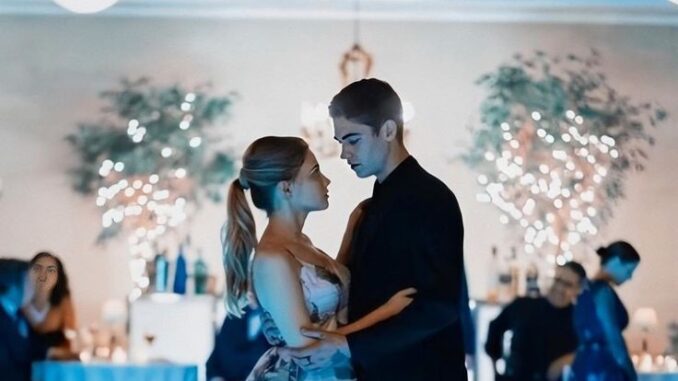
The After franchise has always divided audiences. From its origins as Harry Styles fanfiction on Wattpad to its polished feature film adaptations, the series has thrived on intensity, melodrama, and a dangerously addictive central relationship. But in After Ever Happy, the fourth film in the saga, what was once an intriguing push-pull dynamic between Tessa Young and Hardin Scott devolves into something that is hard to ignore — a toxic relationship dressed up as a love story.
Let’s be clear: After Ever Happy tries to be the emotional reckoning the series needed. It attempts to explore themes of self-destruction, emotional baggage, and the painful journey of growing up. Yet, despite flashes of sincerity and character introspection, the film never truly breaks the cycle of manipulation, co-dependency, and unresolved trauma that has defined Tessa and Hardin’s relationship since the first movie. Instead, it continues to romanticize a deeply unhealthy bond.
From the beginning of the series, Hardin Scott (Hero Fiennes Tiffin) has been portrayed as the archetype of the brooding bad boy. Traumatized by his childhood and lashing out at the world, he finds solace in Tessa (Josephine Langford), the bright and empathetic college student who sees something redeemable in him. While this dynamic has fueled countless fictional romances, After Ever Happy pushes it to the extreme.
In the fourth film, Hardin continues to exhibit emotionally abusive tendencies — controlling behavior, emotional outbursts, and gaslighting — all while the story insists that these are simply the symptoms of a “damaged soul.” The message is clear, if unspoken: if you love someone enough, you can fix them. But this is not a love story. This is a warning sign. And the fact that the film frames these moments with emotional music and longing stares does a disservice to younger audiences who may not recognize red flags when they see them.

In After Ever Happy, Tessa undergoes a devastating personal tragedy that could have served as a powerful moment of individual growth. For a brief time, we see her trying to reclaim control over her life, to separate herself from Hardin’s chaos. It’s a glimmer of hope — a suggestion that the cycle might finally be broken.
Tessa’s character, once full of ambition and potential, is gradually diminished as she keeps getting pulled back into Hardin’s gravitational pull. Her needs, her career, and her emotional well-being are constantly secondary to his journey of self-discovery — a journey that, ironically, always seems to involve hurting her in the process. This isn’t empowerment. It’s surrender. And once again, the film glosses over it with soft lighting and vague dialogue about “soulmates.”
One of After Ever Happy’s major plot points is the shocking revelation that changes Hardin’s understanding of his family. While this could have offered a compelling subplot that contextualizes his trauma, it ends up feeling like a distraction — a device used to explain away his worst behaviors rather than hold him accountable for them. Instead of using this moment to challenge or reshape the relationship, the story uses it to push Tessa and Hardin closer again. Pain becomes the glue that binds them, and the viewer is expected to interpret emotional instability as depth.
It suggests that love is meant to hurt, that emotional volatility is romantic, and that healing a partner is the ultimate form of devotion. It implies that no matter how much someone breaks your heart, your job is to stand by them and endure. In an age where we are finally beginning to have important conversations about mental health, trauma, boundaries, and emotional abuse, After Ever Happy feels like a step backward. Rather than challenging the romanticization of toxic love, it embraces it.
To its credit, the film tries to hint at growth — especially in Hardin. There are moments when he begins to take responsibility for his actions, and the ending tries to convey the idea that sometimes love means letting go. Four movies in, the audience has been conditioned to root for a relationship that has done more harm than good. The emotional payoff of watching Hardin begin to change feels empty when we know it’s come at the expense of Tessa’s stability and happiness. If After Ever Happy truly wanted to evolve, it would have had the courage to separate these two characters for good. It would have shown that sometimes, walking away is the bravest form of love.
